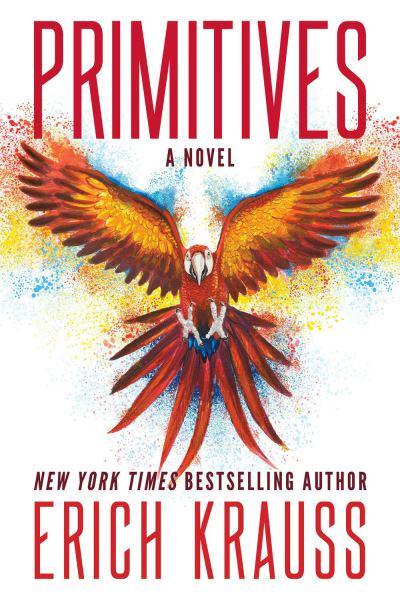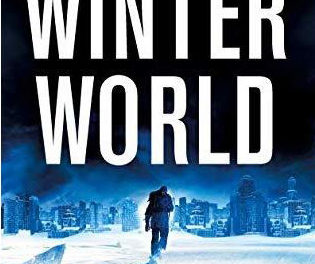On reading Primitives, I could almost hear the ring of a retro-gaming level-up each time the story ascends through a classic trope of dystopian fiction: a protagnonist who survives the end of the world through a combination of ingenuity and luck, an ‘us-vs-them’ and, of course, the perils of mad science unchecked.
Erich Krauss’ 400-and-some page novel, handsomely illustrated, opens 30 years after a new strain of a common pathogen ravages the planet, resulting in a Great Fatigue, a world much more populous with Spoonies than ever before.
Worse than a human race felled by perpetual exhaustion: a potential cure, rapidly developed, results in a devastating loss of most of humans’ higher functions. Tribes of the afflicted, known as Draggers, or the Primitives of the title, are those robbed of intelligence and inhibition by the cure. They roam in violent, cannabalistic packs, with no memory of their old lives.
A survivor settlement’s the focus of the action in Primitives – New Haven. A tropical colony where rigid social order offers both salvation and misery, with little room for dissent. Sarah, a lifelong resident of New Haven, yearns to see the world beyond her home and she’s prepared to break the rules to do so. She’s the daughter of the town’s second-tier citizens, mere breeding stock, or else tasked with labour too menial for New Haven’s ‘elite’ ruling class of scientists. Though any reader who’s ever worked in a scientific or clinical environment knows innovation is girded by the menial work of review and repetition.
One might be forgiven here for dismissing Primitives as a COVID-survivalist fantasy. Or an anti-vaccine screed. Krauss’ scientists are remote, arrogant and utterly devoid of an essential fail-safe: knowing that it’s always possible to be wrong. It’s chief antagonist is a man whose personal pain, alongside belief in his own intellectual superiority turns him into a monologuing supervillian for the COVID-19 era: one who could only gain such power in an isolationist society, where the dimunition of expertise means decisions made from a place of resentment and fear.
Sarah’s narrative runs parallel to that of Seth, an equally lonely, yearning young man who’s lived his whole life in the Utah desert, with only his adoptive father, one of the aforementioned arrogant scientists, for company, education and scant affection. He spends his days trapping unwary Draggers for his father’s research, before discovering the terrible nature of the work. Seth’s discovery leads him across the continent, on a mission to connect, and restore the Primitives’ humanity.
It’s worth getting to the very end of Primitives – not just because it’s propulsive, high-stakes and highly readable. Nor because the set-piece scenes, like those set in an abandoned Vegas casino, are haunting. But, because Krauss’ novel isn’t a COVID-19 allegory. It’s simpler and bigger than that: per Krauss’ author acknowledgements, Primitives is the product of a highly personal struggle with chronic illness and a defence of the scientific method in its purest form: the targeted application of curiosity, humility and hope.
Review by M.M. Hattab







